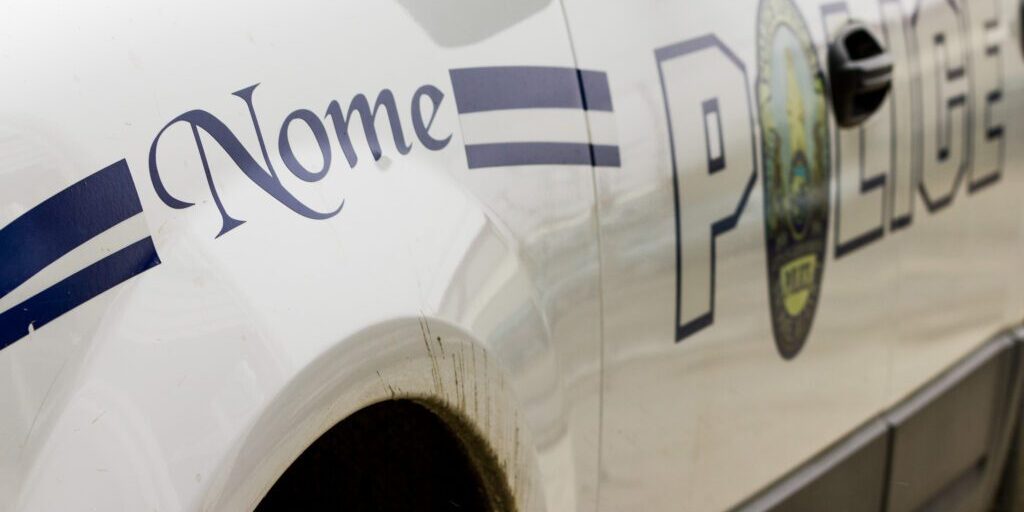Nome has a new city commission: the Public Safety Commission.
This commission comes after months of work between civilian activists and the local city government. This isn’t just a first for Nome; elements of the ordinance are unique compared to similarly-titled organizations around the state.
If a Nome citizen has a complaint about police misconduct they can soon ask the new public safety commission for help.
Casey Reynolds, the communications director for the American Civil Liberties Union, says that distinguishes Nome from other public safety commissions in Alaska.
“That’ll help, because if people are suspicious of the police, if they feel they’ve been wronged by the police, they’re going to be unlikely to want to give that complaint to the police and then potentially face some sort of retribution. So, having an independent body, like a commission that can actually receive complaints, can review them, and make recommendations based on what they’ve seen is huge, and that goes beyond what you see with the other public safety commissions in Alaska.”
Similar groups in the state work to promote positive relationships between city residents and their public safety departments. Those commissions research public safety issues and report back to their city council with recommendations.
The ACLU got involved in creating Nome’s commission after being contacted by residents who were concerned about the treatment of Alaska Native women by the Nome Police.
“So we came in to offer some suggestions on how the city could proceed better, and they took us up on almost all of those suggestions.”
They suggested the commission should have the ability to review completed investigations if a civilian brought forward a misconduct complaint.
The ordinance specifically prohibits the commission from investigating cases or interviewing witnesses. But it does have the authority to ensure the Nome police are following their own operating procedures.
However, the commission is advisory in nature; they make recommendations to the City Council based off their findings and further proceedings go from there.
Similarly, the City of Fairbanks has a Fact Finding Commission. Buzzy Chiu is the Chair of the Fairbanks Public Safety Commission and sits on the Fact Finding Commission. She says that commission was established to investigate concerns people might have with the police, but in the five years she has been sitting, the commission has not been called into session.
Darlene Trigg is a Nome community member who, along with others, advocated on behalf of sexual assault survivors who claim that the Nome Police Department hasn’t always properly handled their cases.
“I don’t see this as an oversight commission; I see this as an opportunity for community members to have a place to share some of the challenging experiences that they may have had… and allow the city to have a space or a place for them to investigate whether or not protocols were followed.”
And while the ordinance requires the city manager to work with the public safety commission to find a confidential way to gather and review those concerns, the city manager and chief of police aren’t members of the commission. Trigg thinks that having a level of separation between the commission and police may do more to ensure public trust.
“…but keeping them off as important that there was a real opportunity for community members to have that direct relationship.”
She also hopes it can give citizens more direct access to the Nome City Council without having to share potentially traumatic information in a public meeting.
Given the nature of the work the commission needs to do, citizens quickly realized that the commissioners will need proper training. The written ordinance requires all sitting commissioners to be trained in confidentiality and due process regarding officer and victim’s rights; the Alaska Open Meetings Acts; The Nome Police Department’s Operations Procedure Manual; racial equity; and trauma-informed interview skills. The commission will have nine members serving overlapping, three-year terms.
Nome community members have long noted that public safety concerns like sexual and domestic violence are most likely to affect Alaska Native women, but the city’s organizations are currently composed of mostly white/non-native men. In an item unique to Nome, the ordinance requires the mayor to consider building a commission that reflects “the cultural, racial, and gender make-up of the community.”
Other public safety commissioners from elsewhere in Alaska, like Gary Gilliam of Anchorage, see advantages in that diversity.
“There’s always a benefit from having someone come from the area… the diversity and the background, it really does help.”
The Anchorage Public Safety Commission does not have any oversight component. Anchorage does have a Community Relations Task force: a group designed to comprise of all the area’s ethnic groups. This group does work directly with the Anchorage Police Department, and together, they are meant to review investigations and actions that occur between the police and members of minority communities. However, it is not written in their bylaws that the Task Force can independently review internal police investigations.
Ultimately, the Nome commission will have similar responsibilities to other Alaska public safety commissions. It will advise the council on public health and safety matters and foster communication between civilians and the public safety department. But, it will also be another resource for Nome-ites who are hesitant to report to the police.
Nome Chief of Police Bob Estes declined to comment on the new ordinance in its current stage.
The City of Nome is accepting applications from those who are interested in serving, but right now, there is no date set for the mayor to select commissioners.
Image at top: A Nome Police Department vehicle. Photo: KNOM file, Matthew F. Smith.




